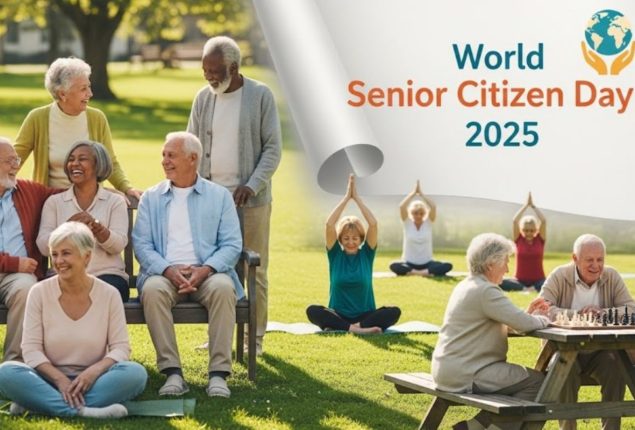
Every year on October 1, the world observes the International Day of Older Persons, a United Nations-declared occasion to honor the contributions of senior citizens and to bring pressing issues such as social inclusion, legal protection, and equitable healthcare to the attention of governments and societies globally.
The United Nations General Assembly, by Resolution 45/106 on December 14, 1990, designated October 1 as the International Day of Older Persons.
The inaugural observance took place on October 1, 1991. The day aims not only to give older persons respect but also to raise awareness about their welfare, rights, and the support systems necessary for their well-being.
The theme for this year, “Older Persons Driving Local and Global Action: Our Aspirations, Our Well Being and Our Rights”, underscores the active role of older individuals as agents of positive transformation in communities worldwide.
United Nations Secretary General António Guterres emphasized:
“Older persons are powerful agents of change. Their voices must be heard in shaping policies, ending age discrimination, and building inclusive societies.”
A senior elder care advocate noted:
“This observance reminds us that ageing is not a burden but a reservoir of wisdom. The rights, dignity, and resilience of the older population merit both celebration and policy commitment.”
In 2019, around 703 million people aged 65 and over lived worldwide. That number is projected to double by 2050, reaching approximately 1.5 billion.
Eastern and South Eastern Asia currently hosts the largest share of older persons globally, including 261 million individuals aged 65+, followed by Europe and North America with similarly substantial populations.
Regions such as Northern Africa and Western Asia, as well as Sub Saharan Africa, are expected to experience the fastest rates of growth in their senior citizen populations over the coming decades.
Global best practices for empowerment and inclusion:
Japan: Provides multifunctional Senior Clubs and Silver Centers where senior individuals engage in physical, cultural, and social activities.
Supports part time employment and voluntary engagement so that age does not become a barrier to participation.
Sweden: Offers digital literacy programmes to ensure seniors are not left behind in technological advancements.
Retirement homes here often integrate music, reading, creative arts, and fitness classes, preserving dignity and engagement.
Canada / USA: Intergenerational programs bring together youth and older individuals to foster mutual learning and social cohesion.
Pakistan Proposed Measures: Establish public centers where older citizens have free access to medical check ups, social counseling, and opportunities for engagement.
Launch initiatives like “Adopt a Grandparent” to reduce isolation among the elderly.
Educational institutions and media should highlight seniors’ stories as sources of inspiration.
In Karachi, 72 year old teacher Akhtar Hussain says:
“My life has been dedicated to education. Now I only ask that society treats me with respect and does not forget our generations who gave much.”
His words reflect how older individuals carry both memory and dignity an essential part of our social fabric that deserves recognition and care.
Read More News On
Catch all the International News, Pakistan News, Breaking News Event and Latest News Updates on The BOL News
Download The BOL News App to get the Daily News Update & Follow us on Google News.




